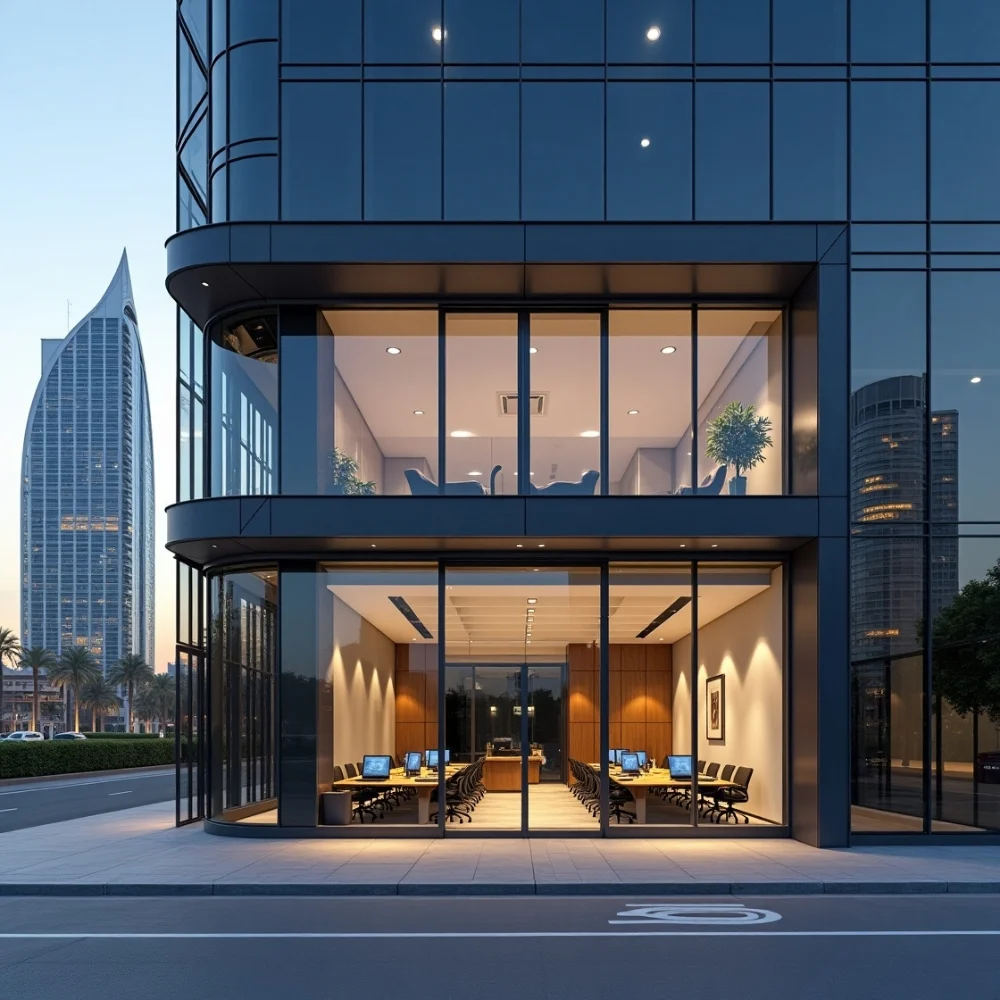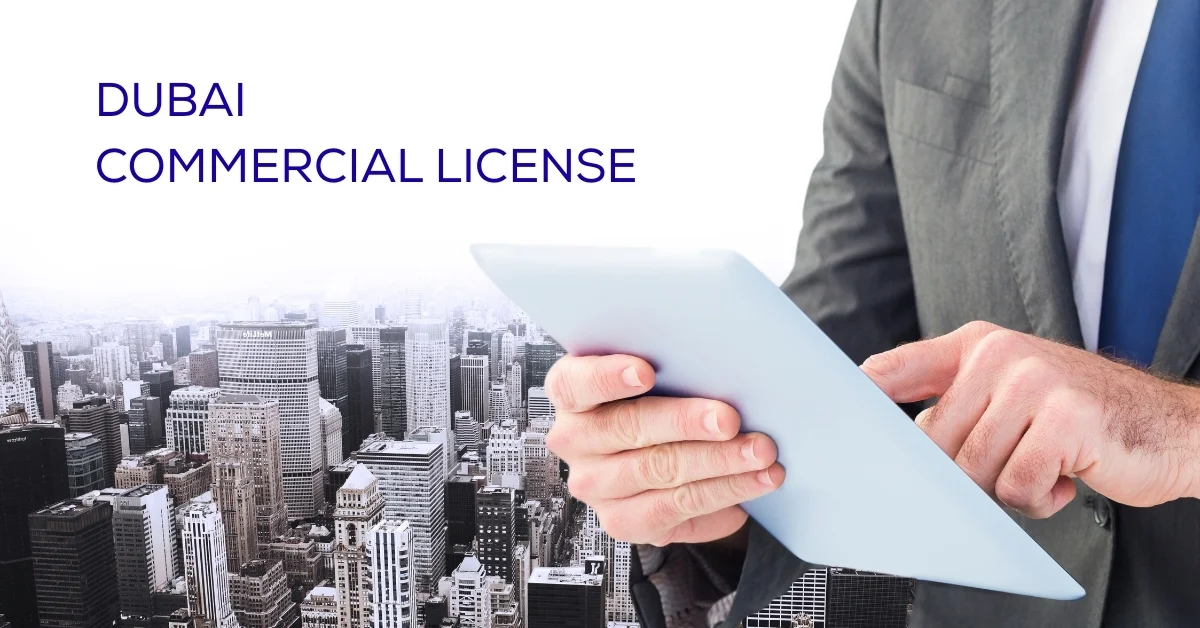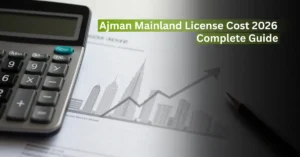Starting a business in Dubai offers endless possibilities, but before you can begin operations, you need the right license. One of the most common permits is the Dubai Commercial License, which allows companies to trade, import, export, and conduct various commercial activities legally. This guide explains what it is, how to get it, its costs, and the benefits it offers.
What Is a Dubai Commercial License?
A Dubai Commercial License is an official permit issued by the Department of Economy and Tourism (DET, formerly DED) or a relevant free zone authority that allows you to conduct trading activities in the UAE. Whether you are importing electronics, selling clothes, running an e-commerce store, or managing a wholesale outlet, this license ensures you operate legally.
Purpose of the Commercial Licence
A Dubai Commercial License serves as the legal foundation for running any trading-related activity in the city. It officially authorizes your company to buy, sell, import, and export goods within Dubai and beyond. With this license in place, you can operate confidently, knowing your business complies with UAE laws and regulations.
Moreover, having a commercial license does more than just make your business legal; it opens doors to growth opportunities. For example, you can open a corporate bank account, sign business contracts, apply for investor or employee visas, and even participate in government or private tenders. This not only streamlines your daily operations but also strengthens your professional standing in the market.
1. Types of Business Licences in Dubai
Dubai offers different types of licenses depending on the nature of your business activity. Understanding these categories helps you choose the right one and avoid complications later.
| License Type | Purpose | Example Activities |
| Commercial | Authorises trading and selling goods | Retail shops, general trading, wholesale trade |
| Professional | Covers service-based businesses | Consultancy, IT services, legal advisory |
| Industrial | Permits manufacturing and production | Factories, assembly plants, product packaging |
While the commercial license is ideal for trading activities, service providers and manufacturers must apply for professional or industrial licenses, respectively. Choosing the correct category ensures smooth approvals and compliance with the Department of Economy and Tourism (DET) or the relevant free zone authority.
Why Businesses Need a Dubai Commercial Licence
1. Legal Requirement for Trading
In Dubai, trading without a commercial license is against the law. Authorities can impose heavy fines, suspend operations, or even shut down businesses that operate illegally. By obtaining the right license from the start, you avoid these risks and can run your operations without interruptions.

2. Boosts Credibility
A registered commercial license instantly boosts your company’s credibility. It signals to suppliers, investors, and customers that your business is legitimate and trustworthy. As a result, it becomes easier to form partnerships, negotiate with distributors, and expand your client base.
3. Free Zone vs. Mainland License
When applying for a Dubai Commercial License, you need to decide between a mainland or free zone setup:
- Mainland: Allows you to trade anywhere in the UAE and internationally without restrictions. You can work directly with the local market and government bodies.
- Free Zone: Offers 100% foreign ownership, tax incentives, and simplified procedures. However, to sell directly in the UAE market, you will need to appoint a local distributor or set up a mainland branch.
By carefully weighing these options, you can select the structure that aligns best with your long-term business goals.
Business Activities Covered Under a Dubai Commercial Licence
A Dubai Commercial License gives you the legal right to engage in various trading-related activities. This flexibility is one of the main reasons why entrepreneurs and investors choose it. With this license, you can operate in multiple sectors, either focusing on one specific market or diversifying across different product categories.
Here are the main activities it covers:
- Wholesale and Retail Trade: You can sell products directly to customers through retail outlets or supply them to other businesses via wholesale distribution channels. This can include anything from clothing and electronics to food products and construction materials.
- Import and Export: The license allows you to bring goods into Dubai from international markets or export products from the UAE to other countries. Thanks to Dubai’s world-class ports and airports, this is a major opportunity for global trade.
- E-Commerce: Online selling is booming in the UAE, and a commercial license enables you to sell products through e-commerce platforms or your online store. This gives you access to both local and international buyers without needing a physical retail outlet.
- General Trading: This option is ideal if you want to deal in multiple, unrelated products under one license. For example, you could sell electronics, clothing, and furniture without needing separate licenses for each product type.
By covering such a broad range of activities, a Dubai Commercial License is perfect for businesses aiming to grow and adapt quickly in a competitive market.
Step-by-Step Guide to Getting a Dubai Commercial License
Securing your Dubai Commercial License involves a clear process. Following each step carefully ensures you avoid delays, rejections, or unnecessary costs.
Step 1 – Choose Your Business Activity
The first step is to decide exactly what you will be doing. The Department of Economy and Tourism (DET) maintains an official list of approved business activities. Your chosen activity must match one of these categories; otherwise, your application will be rejected. Selecting the right activity also ensures your license covers everything you plan to do now and in the future.
Step 2 – Select Mainland or Free Zone Jurisdiction
You need to decide where to register your company:
- Mainland: Gives you full access to the UAE market and allows you to work directly with government contracts.
- Free Zone: Offers 100% foreign ownership, tax exemptions, and simpler procedures, but requires a local distributor to trade directly within the UAE.
Your decision will depend on your target customers, expansion plans, and budget.
Step 3 – Reserve Your Trade Name
Your trade name is your company’s public identity. It must follow UAE naming guidelines, no offensive terms, no religious references, and have no duplication of existing registered names. Once approved, your trade name is reserved for your use during the setup process.
Step 4 – Get Initial Approval
This is essentially a green light from the authorities, stating they have no objection to you starting your business. It confirms that your business activity, trade name, and chosen jurisdiction comply with UAE laws.
Step 5 – Prepare Required Documents
You will need to gather certain paperwork before submitting your application. This usually includes:
- Passport copies of shareholders
- Emirates ID (if applicable)
- Memorandum of Association (MoA)
- Initial approval certificate
Having complete and accurate documents from the start will save you time and prevent delays.
Step 6 – Choose Your Business Location
For mainland companies, you must have a physical office or warehouse. This requires an Ejari, a registered tenancy contract in Dubai. Some free zones offer flexible desk or shared office options, which can lower your setup costs.

Step 7 – Submit Application and Pay Fees
Once you have all your documents and approvals, submit your application to the DET (for mainland) or the relevant free zone authority. You will also need to pay the official licensing fees, which vary depending on your business activity and jurisdiction.
Step 8 – Receive Your Licence and Start Operations
After the authority processes your application, you will receive your Dubai Commercial License. From this point, you can open a corporate bank account, apply for visas, sign contracts, and officially start trading.
Documents Required for a Dubai Commercial Licence
When applying for a Dubai Commercial License, you must provide certain documents to the relevant authority, either the Department of Economy and Tourism (DET) for mainland companies or the free zone authority for free zone setups. These documents prove your identity, confirm your business structure, and verify your compliance with UAE regulations.
Here’s what you typically need:
| Document | Purpose |
| Passport copies of shareholders | Confirms the legal identity of each business owner or partner. |
| Emirates ID (if applicable) | Verifies UAE residency for shareholders or partners. |
| Memorandum of Association (MoA) | Outlines the company’s ownership structure, responsibilities, and operational scope. |
| Ejari/Tenancy contract | Proves you have a registered office or business premises in Dubai. |
| Initial approval certificate | Confirms that UAE authorities have no objection to your chosen activity and trade name. |
Tip: All documents should be valid, accurate, and, if necessary, attested before submission. Incomplete or incorrect paperwork can cause delays or even lead to rejection of your application.
Dubai Commercial Licence Costs
The cost of obtaining a Dubai Commercial Licence depends on several factors, including your chosen jurisdiction (mainland or free zone), business activity, and office requirements. While free zones often offer cost-effective packages for startups, mainland licences provide wider market access within the UAE.
In addition to the basic licensing fee, there are extra expenses you should plan for:
- Office space rent: Required for most business setups; the size and location will impact the price.
- Trade name reservation fee: Paid to secure the exclusive use of your company name during the registration process.
- MoA drafting and notarisation costs: Covers the legal documentation that defines your company’s structure and operational rules.
Renewal Costs: Licence renewal is an annual requirement. The renewal fee is usually similar to the initial application cost, though it can change if your business activities, location, or company structure are modified.
Benefits of a Dubai Commercial Licence
Holding a Dubai Commercial Licence offers a range of advantages that go beyond simply meeting legal requirements.
- 100% Foreign Ownership: Many activities now allow full foreign ownership, giving investors complete control over their business.
- Multiple Business Activities: You can conduct several related or unrelated activities under a single licence, especially with a general trading option.
- Access to UAE and Global Markets: Dubai’s strategic location and excellent logistics infrastructure make it a hub for both local and international trade.
- Visa Eligibility: A commercial licence allows you to apply for investor, partner, and employee visas, supporting your workforce needs.
- Easy Corporate Banking: With a registered licence, opening and maintaining a corporate bank account becomes straightforward, improving business credibility and financial management.
These benefits make the Dubai Commercial Licence one of the most flexible and attractive options for entrepreneurs who want to operate in the region’s fast-growing economy.
Renewal Process for a Dubai Commercial License
A Dubai Commercial Licence is typically valid for one year, and renewing it on time is essential to keep your business running legally. Missing the renewal deadline can lead to fines, suspension of activities, or even licence cancellation. Here’s how the renewal process works:
1. Check the Expiry Date
Always keep track of your licence expiry date. It’s best to start the renewal process a few weeks in advance to avoid last-minute delays.
2. Gather the Required Documents
Renewal requires updated documents, including:
- A valid tenancy contract (Ejari)
- Passport copies of shareholders or partners
- Emirates ID (if applicable)
- Updated Memorandum of Association (MoA) if there have been structural changes
3. Submit the Renewal Application
You can apply either online through the Department of Economy and Tourism (DET) portal or in person at a DET service centre. Free zone companies must apply through their respective authority.
4. Pay the Renewal Fees
The renewal cost depends on your jurisdiction, business activity, and office size.
Penalties for Late Renewal
Failing to renew your licence before the expiry date can result in daily fines. Continued delays may lead to the suspension of your business activities, making it impossible to sign contracts, process payments, or apply for visas.
Common Mistakes to Avoid When Applying
When applying for a Dubai Commercial Licence, even small errors can cause significant delays or unexpected expenses. Here are the most common pitfalls:
- Choosing the Wrong Business Activity: If your chosen activity doesn’t match your actual operations, you could face licence restrictions or need to reapply.
- Ignoring Jurisdiction Differences: Mainland and free zone licences have different rules, benefits, and limitations. Choosing the wrong one can limit your market access.
- Submitting Incomplete or Incorrect Documents: Missing signatures, expired IDs, or inaccurate details can cause your application to be rejected.
- Overlooking Renewal Costs: Not budgeting for annual renewal can create financial stress and put your business at risk.
By avoiding these mistakes, you can ensure a smoother setup and renewal process.
Launch Your Business with Expert Commercial Licence in Dubai
Ripple LLC helps you navigate every step of obtaining your Dubai Commercial Licence with confidence. From choosing the correct business activity to ensuring full compliance with UAE regulations, our experts provide tailored solutions that save you time and effort. Whether you are setting up on the mainland or in a free zone, we ensure a smooth and hassle-free process so you can focus on growing your business.
For personalised assistance, you can reach Ripple LLC at +971 4 250 0833 or email info@ripplellc.ae. You can also visit our website at www.ripplellc.ae to learn more about our services and book a consultation.
FAQ
1. Can I operate online with a commercial licence?
Yes. As long as e-commerce is included in your approved activities, you can legally sell products online through marketplaces, social media, or your own website.
2. How long does it take to get the licence?
Most applications are processed within 3–7 working days, provided all documents are correct and fees are paid on time.
3. Can I add more activities later?
Yes, you can amend your licence to include additional approved activities. This may involve extra fees and updated documents.
4. Is an office space mandatory?
For mainland companies, a physical office or warehouse with a registered Ejari is mandatory. Some free zones, however, offer flexible desk or shared office packages for businesses that do not require full-time premises.






